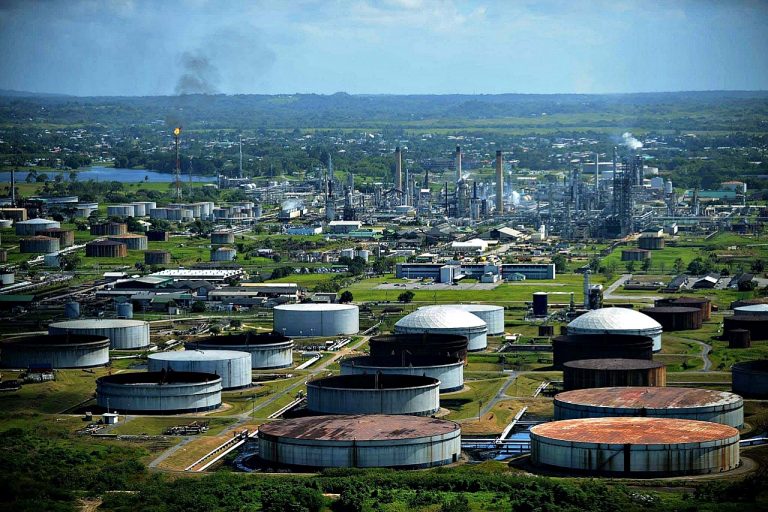
Senegal has officially begun refining crude oil from its Sangomar offshore oil field, marking a historic milestone in the country’s journey toward energy self-sufficiency.
The African Refinery Company (SAR), which has been operational since 1961, announced on Thursday that it had successfully processed locally produced crude oil for the first time. This comes just months after Senegal commenced oil production in June 2024, further solidifying its entry into the global energy market.
This development is particularly significant as it follows the launch of the Dangote Refinery in Nigeria, a megaproject that has already started disrupting fuel 1supply dynamics in Europe. The new refining capacity in Senegal is expected to complement the Dangote Refinery’s operations, providing an additional source of refined petroleum products for the West African region and reducing dependence on imports.
Register for Tekedia Mini-MBA edition 19 (Feb 9 – May 2, 2026).
Register for Tekedia AI in Business Masterclass.
Join Tekedia Capital Syndicate and co-invest in great global startups.
Register for Tekedia AI Lab.
For decades, SAR has processed only imported crude oil, relying on external suppliers to meet Senegal’s fuel demands. However, the refinery is now handling locally extracted crude for the first time, marking a crucial step toward energy independence.
“SAR is proud to announce that it has successfully refined the first crude oil produced in Senegal, the Sangomar,” the company said in a statement.1
The refinery has so far processed 650,000 barrels of crude oil, producing approximately 90,000 tons of petroleum products, including:
- Diesel
- Kerosene
- Petrol
- Butane gas
- Heating oil
These products are currently being transported to dedicated storage areas for local distribution and potential export.
The Sangomar offshore oil field, located 100km south of Dakar, is Senegal’s first major oil project and is operated by Australian energy giant Woodside Energy. The field is expected to produce up to 100,000 barrels per day at full capacity, contributing significantly to Senegal’s energy security and economic growth.
While Senegal’s oil output remains far below that of leading African producers like Nigeria and Angola, its entry into domestic refining marks a crucial turning point. The country has now joined the ranks of nations that process their own crude oil, reducing dependency on imports and strengthening its petroleum supply chain.
Senegal’s refinery expansion is particularly timely as Nigeria’s Dangote Refinery, a $20 billion project, has begun exporting diesel and jet fuel overseas, disrupting traditional supply routes. With a refining capacity of 650,000 barrels per day, Dangote’s facility is set to reshape fuel supply chains globally, reducing reliance on refiners in Europe, Asia, and the Middle East.
Industry experts suggest that Senegal’s refining operations could serve as an important supplement to Dangote Refinery, ensuring stable fuel supply across West Africa and beyond.
Lessons For Nigeria
While Senegal is celebrating its first refined crude oil, Nigeria—Africa’s largest oil producer—has continued to struggle with its ailing refineries. Despite producing over 1.5 million barrels per day of crude oil, Nigeria still imports most of its refined petroleum products due to the non-functionality of its state-owned refineries.
Over the past two decades, the Nigerian government has spent billions of dollars on refinery rehabilitation, yet none of its four refineries have returned to full production. The Port Harcourt, Warri, and Kaduna refineries remain largely idle, forcing the country to rely on imported fuel, even as it boasts vast crude oil reserves.
Senegal’s ability to quickly transition into refining domestically produced crude has sparked conversations about what Nigeria could learn from its smaller West African neighbor. Experts argue that if Senegal—an emerging oil producer—can refine its crude successfully, Nigeria should be able to get its long-dormant refineries back to work.
“Senegal is currently at 100k barrels per day from 24 producing wells,” says energy expert, Kelvin Emmanuel. “Instead of join OPEC, it’s opting for building a midstream sector to refine its own share of crude and most likely sign a right of first refusal with the operating partner’s cost and profit oil, so it can stop importing white fuels with scarce FX, improve its balance of trade and payments and strengthen its macro-economic fundamentals.”
Many stakeholders are urging the Nigerian government to emulate Senegal’s model by seeking public-private partnerships to make its refineries functional again.
Senegal’s move to refine its own crude oil is expected to generate billions of dollars in revenue, accelerate economic transformation, and lower fuel costs for consumers. The country aims to reinvest oil revenues into infrastructure, healthcare, and education, ensuring broad economic benefits beyond the energy sector.
“Oil and gas production in Senegal will lead to exports and domestic consumption, but is far off the levels reached by global and African producers such as Nigeria,” SAR stated.



